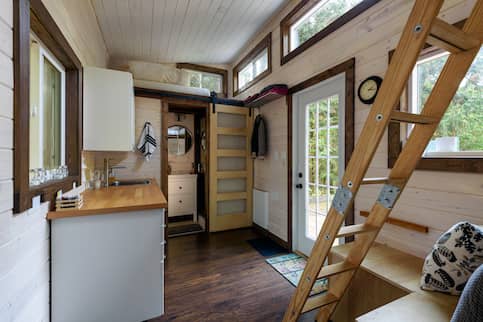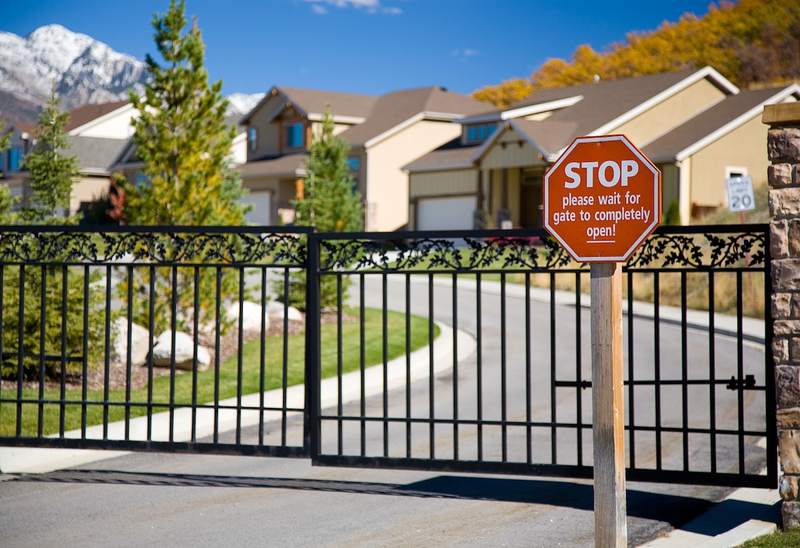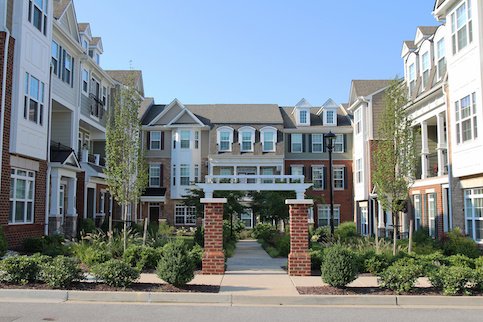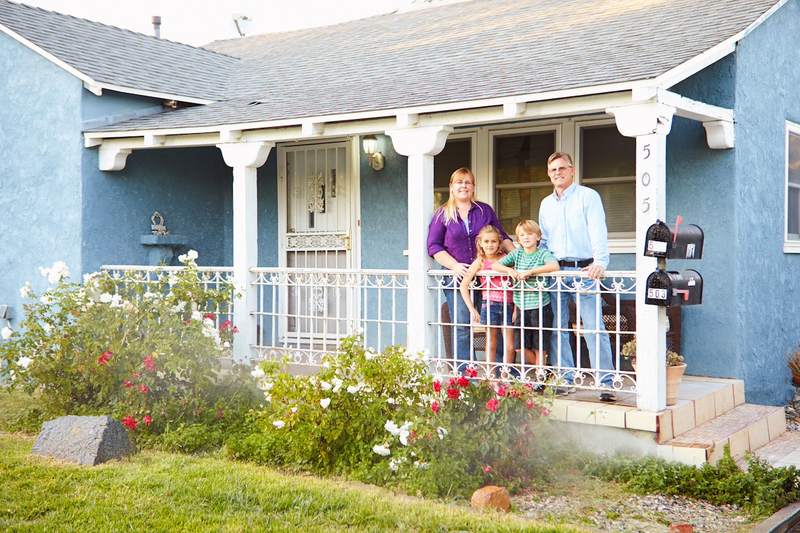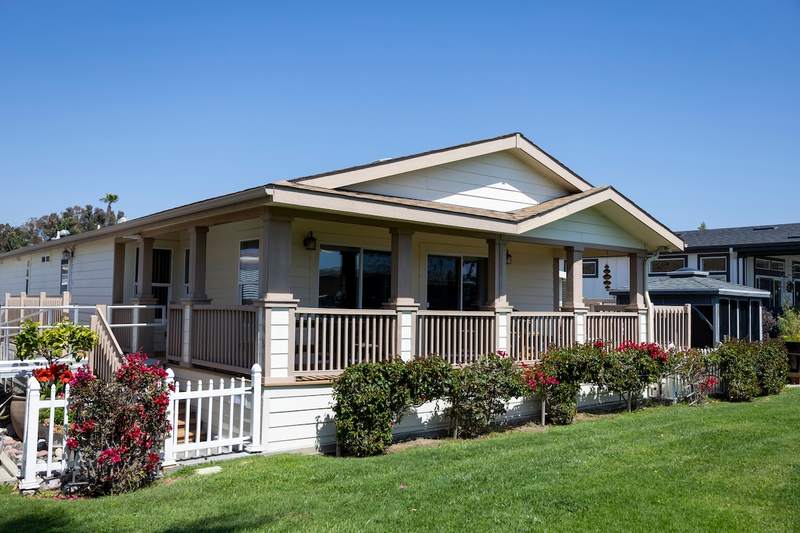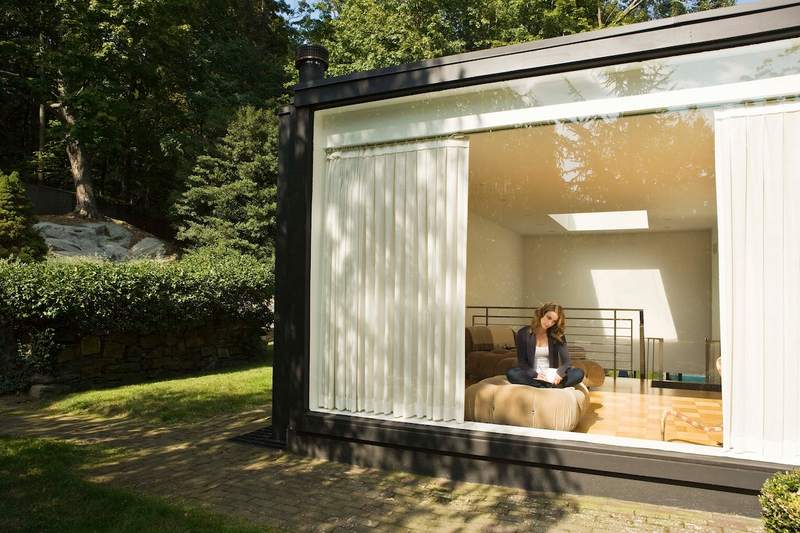A co-op is a common type of alternative housing usually found in large cities. A less-expensive housing option with a shared ownership structure, a co-op can be a good choice when available. You might save money with this less-traditional option compared to buying a condo or single-family home.
If you’re thinking about purchasing a co-op, read on to learn more about what they are and how to decide if a co-op is right for you.
Co-Op, Defined
A co-op, or housing cooperative, is a type of housing owned by a corporation made up of the owners within the co-op. The corporation owns the interior, exterior and all common areas of the building. Instead of buying property as you would in a traditional real estate transaction, you’re buying shares of the corporation – the co-op association – that controls the co-op, which entitles you to living space.
Co-ops are typically more common in crowded cities with a high cost of living because they cost less upfront than condos or houses. However, they come with higher monthly maintenance fees (discussed below).
For example, co-op apartments are common in New York City. In fact, in some areas of New York, such as Manhattan, they make up about 74% of all apartments. This means co-ops greatly outnumber traditional condo units
See What You Qualify For
Buy A Home
Discover mortgage options that fit your unique financial needs.

Refinance
Refinance your mortgage to have more money for what matters.
Tap Into Equity
Use your home’s equity and unlock cash to achieve your goals.
How Does A Co-Op Work?
When you buy into a co-op, instead of getting a piece of property with a standard deed, what you’re actually getting is a share in the building. Co-ops are owned and managed by a not-for-profit co-op association, with every shareholder tenant sharing in the expenses for maintenance and services.
The Co-Op Association
The co-op association is run according to its bylaws, which members vote on in case of disputes.
The co-op association manages membership fees to cover building maintenance, property taxes, amenities and any underlying mortgages attached to the property and its units.
The Co-Op Board
To oversee the building’s administration, shareholders elect a co-op board. They decide which management company to work with, how to set monthly maintenance fees and when to undertake – and how to afford – major maintenance, renovation and repair.
The Co-op Owner, Or Shareholder
All shareholders are members of the co-op association and therefore are responsible for voting on co-op rules and management.
Co-op owners are also responsible for paying monthly maintenance fees and any special assessments levied by the co-op board.
The Management Company
The board members hire a management company to implement the day-to-day decision-making and management tasks. In larger buildings, the management company typically hires an on-site superintendent to handle common area cleaning and routine maintenance.
Condo Vs. Co-Op: What’s The Same And What’s Different?
When considering buying a condo versus a co-op, costs can be a big factor. However, price isn’t the only thing for you and your lender to consider.
Let’s look at some key similarities and differences to be aware of during the buying process.
Similarities
Here are a few of the similarities to keep in mind:
- Amenities: Both co-ops and condominiums are shared living spaces. That means they have common areas, amenities and services that add to the value of the property or co-op shares.
- Lender review: Your lender will want to evaluate the viability of the association to make sure it can continue to meet its financial obligations and provide services long term. For both types of ownership, your lender will need to review the finances and legal considerations for the building.
Differences
There are a couple of key differences you’ll want to be aware of when you’re deciding whether to buy a condo or co-op.
- Sale price of the unit: In most cases, buying a co-op will cost significantly less than a condo. While the reasons for this can differ, they include supply and demand, differences in handling property taxes and the owners’ ability to secure financing.
- Monthly costs: Even though cooperatives are generally cheaper to buy, their monthly costs can be higher than a condo’s and might include property taxes, payroll obligations and repair expenses. Condos might have more limited fees for maintenance and amenities.
- Renovation restrictions: Since the home buyer owns the interior of a condo, they can make any changes to their living space, as long as they abide by the condo’s noise and common area use policies. However, co-op owners will need the board’s approval to renovate.
What’s Different About Buying A Co-Op?
There’s an important difference between buying a co-op and other property ownership arrangements.
You Need Co-Op Board Approval To Buy
Co-op boards have the power to approve or disapprove of buyers before the co-op sale can go forward. That means you have to submit a board package – prepared by your real estate agent – and be interviewed by the board.
In general, co-op boards want to be sure that you can make monthly payments on time and that you won’t cause disturbances in the building.
You Have To Mind The Bylaws
If you’re planning on renovating your new apartment, check the bylaws before buying. Co-op boards must approve any renovations you make to your apartment. Your co-op’s bylaws may also contain prohibitions against pets, noise, smoking and other personal choices about your living space or habits.
Bylaws also contain provisions like flip taxes, which you may have to pay to the board when you sell, and subletting policies aimed at preventing subletting. Read the bylaws carefully before you buy.
You Might Have Additional Financial Obligations
As a co-op owner, you’re responsible for your share – based on the percentage of shares you own in the building – of the building’s underlying mortgage, as well as your share of the building’s common fees. These fees are combined into a monthly maintenance fee based on the structure of the co-op. This fee is on top of any mortgage or financing you took out for the shares themselves.
You may also be required to pay a special assessment if the building requires major repairs or renovations while you’re living there.
Co-Ops Offer Tax Benefits
There are tax benefits that come with co-op ownership. Let’s take a look at some of the most common tax breaks for co-op owners.
Mortgage Interest Deduction
If you itemize your tax deductions, you can deduct interest on the loan for your shares of the property, and you can also deduct your share of the interest on the blanket mortgage the co-op association holds for the building.
However, there are limits on this deduction. For any real estate purchased after December 15, 2017, mortgage interest can be deducted on property values up to $750,000 for joint filers, and $375,000 if you are married and filing separately. If you purchased your home prior to that date, you’re grandfathered in under the old limits of $1 million in terms of property value.
Maintenance Deductions
You may also be able to deduct maintenance fees as long as they are for true maintenance and not property improvement. The IRS has guidelines, but they get a bit complicated, so we always recommend speaking to a tax adviser or the IRS if you have any questions.
Property Taxes
Finally, you can deduct your share of state, local and property taxes up to a combined total of $10,000 (or $5,000 if married filing separately).
Find A Mortgage Today and Lock In Your Rate!
Get matched with a lender that will work for your financial situation.
How To Buy A Co-Op Share
The home buying process for a co-op may be different from purchasing other types of homes, but it’s fairly straightforward. Ready to get started? Let’s take a look at the next steps.
1. Apply For Mortgage Preapproval
First, you’ll need to get preapproved for a loan. For preapproval, your lender will look at income, how you intend to use the property, its value and your assets and credit.
You can start by choosing a mortgage lender after you compare rates and terms. Your lender looks at your credit score, verifies your income and assets then looks at your debt-to-income ratio (DTI).
If everything looks good you’ll get a preapproval letter with a mortgage limit.
2. Choose An Apartment
Now it’s time to start apartment hunting. Finalize your budget and start viewing apartments with your real estate agent.
If you aren’t sure of your budget, you can use our mortgage calculator to get an idea of how much you can afford.
Once you find an apartment, you’ll make an offer and hopefully get accepted. The next steps are a bit different than getting a traditional mortgage.
3. Lender Reviews The Co-Op Or Condo Association
The next step of the process is the lender’s review of the co-op association to determine its stability. They’ll look at the co-op’s budget, insurance policies and bylaws. Some lenders may also take the time to confirm that the co-op isn’t currently under construction before funding the mortgage.
4. Co-Op Board And Bylaws Approval Process
This step is unique to co-op transactions: you often have to apply for approval before the co-op board, which may include an interview as well as a financial background check.
Co-op boards can reject your application for almost any reason. However, they must comply with the federal Fair Housing Act, which means you can’t be rejected based on race, color, disability, religion, sex, familial status or national origin.
In general, the associations should only ask about two things:
- Your finances and credit history
- Whether you understand and are willing to comply with the bylaws
Lenders will also be on the lookout for bylaw provisions that place restrictions on an owner’s right to sell when and to whom they wish.
5. Close On Your Mortgage
The final stage of the co-op buying process is receiving your funds and closing on your mortgage. Once the co-op board and your lender approve your application, your loan will go through the underwriting process. Then your lender will schedule a closing date, where you will sign the paperwork and pay your closing costs and down payment. All you have to do next is take possession of the co-op and move into your new home.
FAQ
If you’re still unsure if a co-op is the right choice for you, we’ve got answers to some frequently asked questions.
Co-ops are often confused with voluntary housing cooperatives, where owners live and work together to reduce fees and foster a sense of community or common purpose. In those arrangements, owners may very well agree to perform community responsibilities.
The Bottom Line
If you’re looking for a realistic way to live in a bustling metropolitan area or want to enjoy homeownership without all of the additional responsibilities, a co-op may be a good option for you. But remember, you have to play by the association’s rules. Take the time to weigh the pros and cons and make sure you’re able to get the financing you need.
See what you can afford
Quicken Loans® can help you find a lender.

Victoria Araj
Victoria Araj is a Staff Writer for Rocket Companies who has held roles in mortgage banking, public relations and more in her 15-plus years of experience. She has a bachelor’s degree in journalism with an emphasis in political science from Michigan State University, and a master’s degree in public administration from the University of Michigan.

